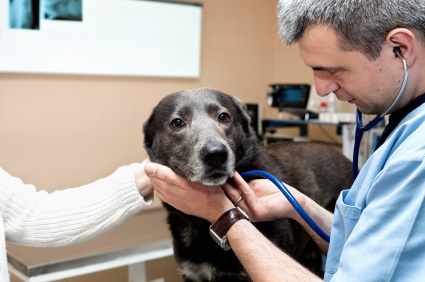Overview
You, Your Dog & Parasites
Dogs are not just pets. They are treated like members of the family. And like any member of your family, it’s important to keep your companion animal healthy and free of parasites.
 Monitoring for any changes in behavior, appetite, or water consumption and regular visits to your veterinarian are important to the care and well-being of your dog. Your veterinarian can accurately diagnose and safely treat parasites and other health problems that not only affect your dog, but also the safety of you and your family.
Monitoring for any changes in behavior, appetite, or water consumption and regular visits to your veterinarian are important to the care and well-being of your dog. Your veterinarian can accurately diagnose and safely treat parasites and other health problems that not only affect your dog, but also the safety of you and your family.
It is fairly common for a dog to become infected with an internal or external parasite at some point in its lifetime. Parasites can affect your dog in a variety of ways, ranging from simple irritation to causing life-threatening conditions if left untreated. Some parasites can infect and transmit diseases to people.
By following your veterinarian’s recommendations and having your pet tested for parasites annually, you can protect your dog and your family from potentially harmful parasites all year long. Click on the parasite links to the right for information on the signs they cause in pets, where they are located, how they affect your dog, the health risks to people, and prevention tips.
Did you know?
- Dogs often get parasites at some point in their life.
- Some dog parasites can infect and transmit diseases to humans.
- By working with your veterinarian and having your pet tested for parasites annually, you can protect your dog and your family.
- Also, monitor your dog for changes in behavior, appetite, or water consumption that could mark a problem.
- Overview
- Coccidia
- Ear Mites
- Fleas
- Giardia
- Heartworms
- Hookworms
- Mange
- Roundworms
- Scabies
- Tapeworms
- Ticks
- Whipworms
Ask Your Veterinarian
Learn how to prevent parasites in your puppy or dog. It is almost always easier and more cost-effective to prevent parasites than to treat them once your dog has them. It is also safer for you and your family to have a parasite-free pet.
Learn More